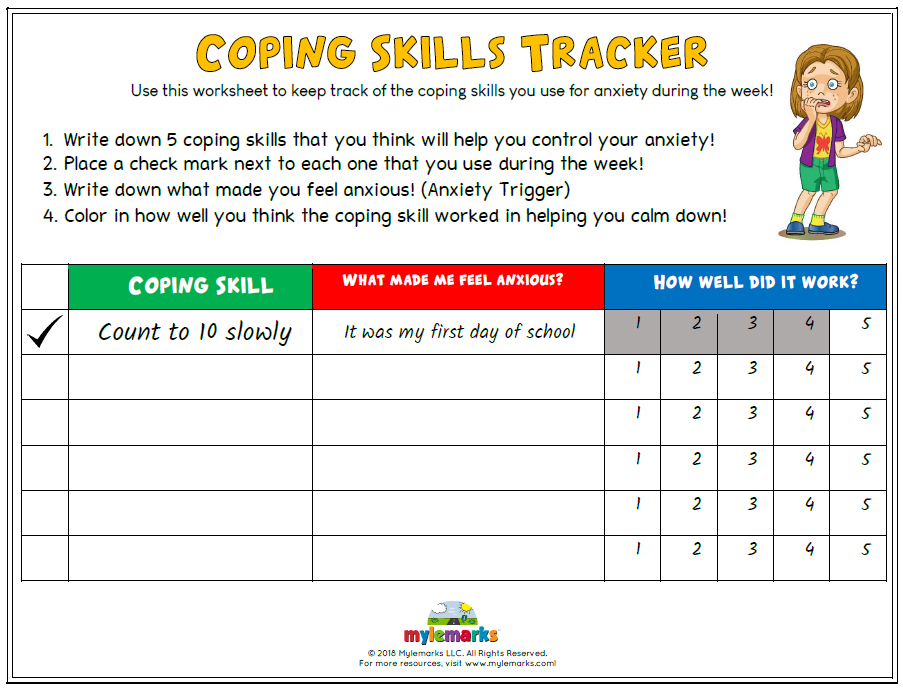It is common for individuals to experience feelings of anxiety from time to time. However, when anxiety becomes overwhelming and interferes with daily life, it is important to have coping skills to manage these emotions. One effective tool that can be used to cope with anxiety is worksheets. These worksheets can help individuals identify triggers, recognize negative thought patterns, and develop strategies to overcome anxious feelings.
Using worksheets as a coping mechanism for anxiety can provide structure and guidance in managing overwhelming emotions. They offer a systematic approach to addressing anxiety triggers and developing healthy coping strategies. By engaging in exercises on these worksheets, individuals can gain insight into their feelings and behaviors, ultimately leading to better management of anxiety.
Coping Skills for Anxiety Worksheets
1. Identify Triggers: One of the first steps in managing anxiety is to identify triggers that contribute to feelings of unease. Worksheets can help individuals pinpoint specific situations, thoughts, or behaviors that lead to anxiety. By recognizing these triggers, individuals can take proactive steps to avoid or cope with them effectively.
2. Challenge Negative Thoughts: Anxiety often stems from negative thought patterns. Worksheets can help individuals challenge these thoughts by providing exercises that encourage positive reframing and cognitive restructuring. By replacing negative thoughts with more balanced perspectives, individuals can reduce anxiety and improve their overall well-being.
3. Develop Coping Strategies: Worksheets can also assist individuals in developing coping strategies to manage anxiety in a healthy way. These strategies may include relaxation techniques, mindfulness exercises, or problem-solving skills. By practicing these coping mechanisms regularly, individuals can build resilience and better cope with anxiety-provoking situations.
4. Track Progress: Worksheets can serve as a tool for tracking progress in managing anxiety. By recording thoughts, feelings, and behaviors over time, individuals can identify patterns and trends in their anxiety levels. This self-monitoring can help individuals evaluate the effectiveness of their coping strategies and make adjustments as needed.
5. Seek Professional Help: While worksheets can be a valuable resource in managing anxiety, it is important to seek professional help if feelings of anxiety persist or worsen. A mental health professional can provide personalized guidance and support to address underlying issues contributing to anxiety.
In conclusion, coping skills for anxiety worksheets can be a useful tool in managing overwhelming emotions and developing healthy coping strategies. By utilizing these worksheets, individuals can gain insight into their anxiety triggers, challenge negative thought patterns, and develop effective coping mechanisms. Remember, it is essential to seek professional help if anxiety becomes unmanageable. With the right support and resources, individuals can overcome anxiety and improve their overall well-being.
